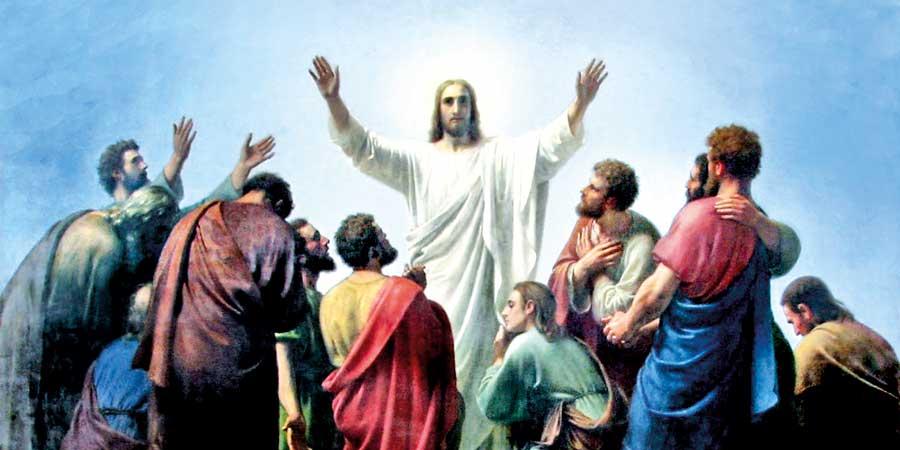29 Mar 2024 - {{hitsCtrl.values.hits}}

We live in a world where God-given resources are shared unjustly. We see this not only in the world scene but also among and within our nations. God who has revealed Himself in the Bible is not a God who stands aloof and watches the sufferings of this world. God who hears the pain and the unjust sufferings of His people who are created in His image breaks into this world as the liberator or liberating God.
 It is this God who sent Moses before Pharaoh and demanded to liberate His people. Moses’s cry before Pharaoh was “Let my people go…” (Ex.8:1).
It is this God who sent Moses before Pharaoh and demanded to liberate His people. Moses’s cry before Pharaoh was “Let my people go…” (Ex.8:1).
It is this God who sent Jesus (Immanuel-‘God with us’- Mt.1: 23-24) to break into human history to liberate people from man-made causes that have made people suffer unjustly. In that sense people in this world suffer not because of a punishment for the sins they have committed. They suffer because the people and countries who have held and who hold onto power through unjust means have sinned against them. In that sense people are not poor because of the sins committed by them. They are poor because those who held and hold power over them have sinned against them.
Jesus who is called the Christ came to this world to save the suffering humanity. Jesus saw their suffering at least from two perspectives. First, the existing religious teachings, rituals and the authority of those who held religious power made the people in Jesus’s context suffer unjustly. The cleansing of the Jerusalem Temple and the clash with the religious authorities like the Pharisees etc are good examples to prove this fact. The second, is the power and the authority of the Roman Empire over the people whom they ruled over.
Religious authorities
The entire episode of Jesus’s confrontation with the religious authorities of his day which led to his rejection from the accepted religious atmosphere and all the suffering that had to be endured by Jesus has to be understood from that perspective. The plot to kill Jesus was conspired by the unjust powers of those who held religious power and the powerful authorities of the Roman Empire. On the surface these two institutions, namely religious and political, were enemies. They had nothing in common. But to kill Jesus whom they felt was a threat to the religious establishment and the most powerful political Empire at that time, these two establishments came together and conspired against Jesus. That is what happened then and that is what happens even today. Established/Institutionalized religion, political and economic powers come together to kill and destroy any power that they feel is a threat to them. We can see this dual partnership of religion and politics as a form of “Religionization of Politics” and “Politicization of Religion”.
This is what happened to Jesus Christ. An innocent man of 33 years of age who revealed God’s vision for the world through the Nazareth Manifesto (Lk.4:18-20) and invited His followers to imitate the values and ethics of the Reign of God/Kingdom of God was arrested, tortured and killed. From a human perspective that was the end of Jesus and His Ministry. It does not end that way. Why? Because, God intervenes and brings Jesus back to life. That is the story and the reality of the Resurrection which we call Easter. Easter is God’s way of saying NO to evil and injustice and YES to God’s affirmation of Life and Justice. Therefore, we are called to understand the saying of Peter in his Pentecost preaching “This Jesus God raised up, and of that we all are witnesses”, (Acts 2:31-32) from this perspective.
Generally we say Jesus rose from the dead. That is wrong theology. It is God who raised Jesus from the dead. That is the
Eucharist
God whom we believe and are called to witness for in this world. Therefore, Easter should not be merely a day in the Church calendar where we gather for the celebration of the Eucharist and say “Alleluia, Jesus is Risen”. It should be a day where the Risen Jesus comes into our lives and embodies in us so that we become God’s instruments to transform the world and become channels of God’s grace to say Yes to justice and No to injustice.
(The write is a lecturer at the Theological College of Lanka, Pilimatalawa, Sri Lanka).
30 Apr 2024 1 hours ago
30 Apr 2024 1 hours ago
30 Apr 2024 2 hours ago
30 Apr 2024 3 hours ago
30 Apr 2024 3 hours ago